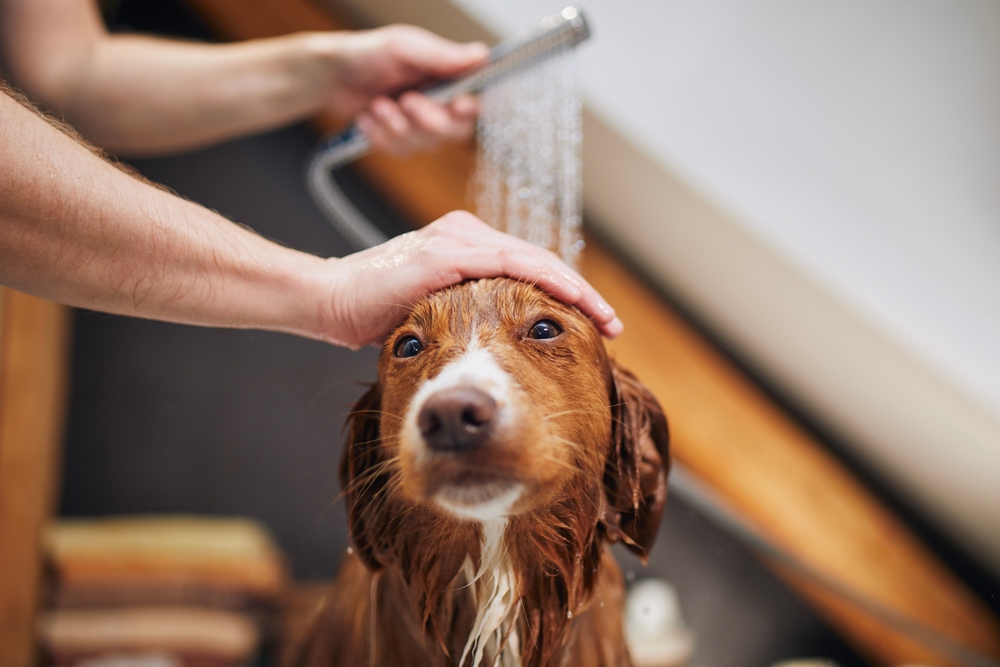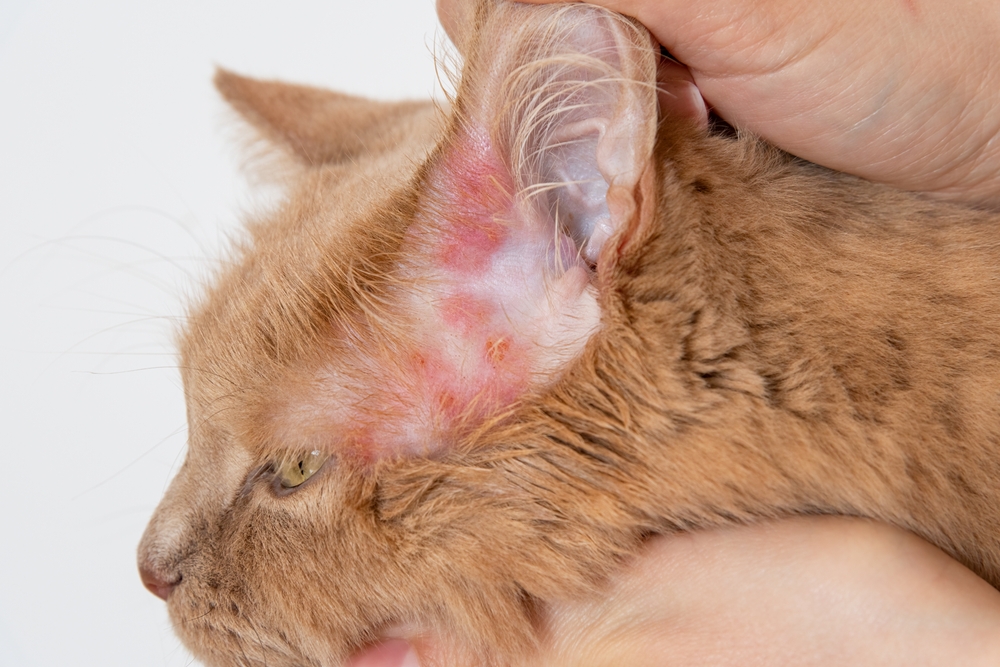Pets can be allergic to several environmental substances that are often in their homes. Allergies can cause discomfort and affect your pet’s health and general well-being. By learning to recognize your cat’s or dog’s allergy signs, you can help them get timely care and relief. Our Memorial Animal Hospital team discusses allergies in pets, explaining five common signs that indicate your furry pal might be suffering. We also provide tips on how you can manage their allergic reactions effectively.
#1: Your pet is persistently scratching
One of pets’ prevalent allergy signs is persistent itchiness. If your furry pal is constantly licking, biting, or scratching certain areas of their body, including their paws, they are likely having an allergic reaction. Pay close attention to your pet’s scratching frequency and the body sites they scratch.
#2: Your pet has skin irritation and inflammation
Many allergy types manifest as skin conditions, including redness, inflammation, and rashes. Watch for changes in your pet’s skin texture or appearance such as dry patches, flakiness, or sores. Excessive grooming or licking can also lead to hair loss in affected areas. Additionally, look for flea and other parasite signs, which may be the culprits for your pet’s skin condition. An immune system reaction to flea saliva can cause sensitive pets to develop flea bite dermatitis (FAD).
#3: Your pet has recurrent ear infections
Pets with allergies, especially dogs with floppy ears, often develop ear infections. If your pet frequently shakes their head, scratches their ears, or displays sensitivity when you touch them, your furry pal could have an underlying allergy and ear infection. Look at your pet’s ears regularly, checking for redness, swelling, discharge, or foul odor. Contact our Memorial Animal Hospital team if these concerning signs are present.
#4: Your pet is sneezing and has watery eyes
Just like you, your pet can experience respiratory conditions if they have an allergy. If your pet constantly sneezes, coughs, or has watery eyes, these signs may result from airborne allergens such as pollen, dust mites, or mold. Respiratory problems can also be linked to infectious illnesses, so schedule a visit with our veterinary team because we need to identify the cause of your four-legged friend’s upper respiratory issues.
#5: Your pet has gastrointestinal flare-ups
Allergies can affect your pet’s digestive system, leading to vomiting, diarrhea, or excessive gas. Pay attention to changes in your pet’s eating habits, appetite, or stool quality, as these could indicate a food allergy or intolerance. Because digestive upset can be caused by several conditions, from mild to severe, you should have your furry pal examined by our team to rule out underlying health conditions if your pet exhibits gastrointestinal (GI) signs. Ingredients in your pet’s food can be responsible for GI issues, which may require a diet change to minimize their digestive problems.
Managing allergies in pets

Our Memorial Animal Hospital veterinarian can identify the specific allergens causing your pet discomfort. We perform a thorough exam, discuss your observations about when the allergy signs started, and perform allergy tests, which include blood analysis and skin assessment.
Unfortunately, allergies have no cure, but the good news is the signs can be managed. Our team often uses a multitier approach to treating pet allergies, which includes:
- Medication — Our veterinarian may prescribe antihistamines, corticosteroids, anti-inflammatories, and other drugs to manage your pet’s allergies.
- Dietary change — If your pet has a food allergy, they may require a hypoallergenic or limited-ingredient diet to maintain their health and stay allergy-free.
- Immunotherapy — Also known as allergy shots, immunotherapy desensitizes your pet’s immune system by gradually introducing the offending allergens so their body can adapt to them.
- Avoidance — You can reduce your furry friend’s allergen exposure by keeping them indoors as much as possible during peak pollen seasons, using air purifiers in your home, and laundering your pet’s beds and bedding frequently.
- Grooming — Regularly groom your four-legged pal to remove allergens, such as pollen, dust mites, and dander. Bathing them with a gentle, hypoallergenic shampoo can also help soothe irritated skin.
By learning to recognize pets’ allergy signs, you can take proactive steps to provide your furry pal with itch relief and improve their quality of life. By properly managing your four-legged friend’s allergy signs, you can help your pet live a happy, vibrant life despite their allergies. If you suspect your pet has allergies, schedule an appointment with our Memorial Animal Hospital team so we can develop your furry pal’s personalized allergy treatment plan to help them feel their best.






Leave A Comment